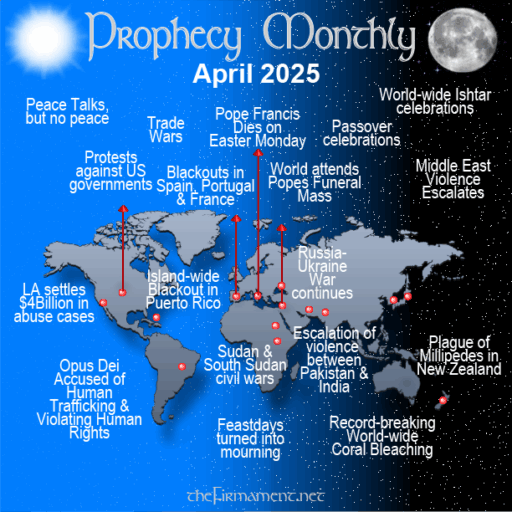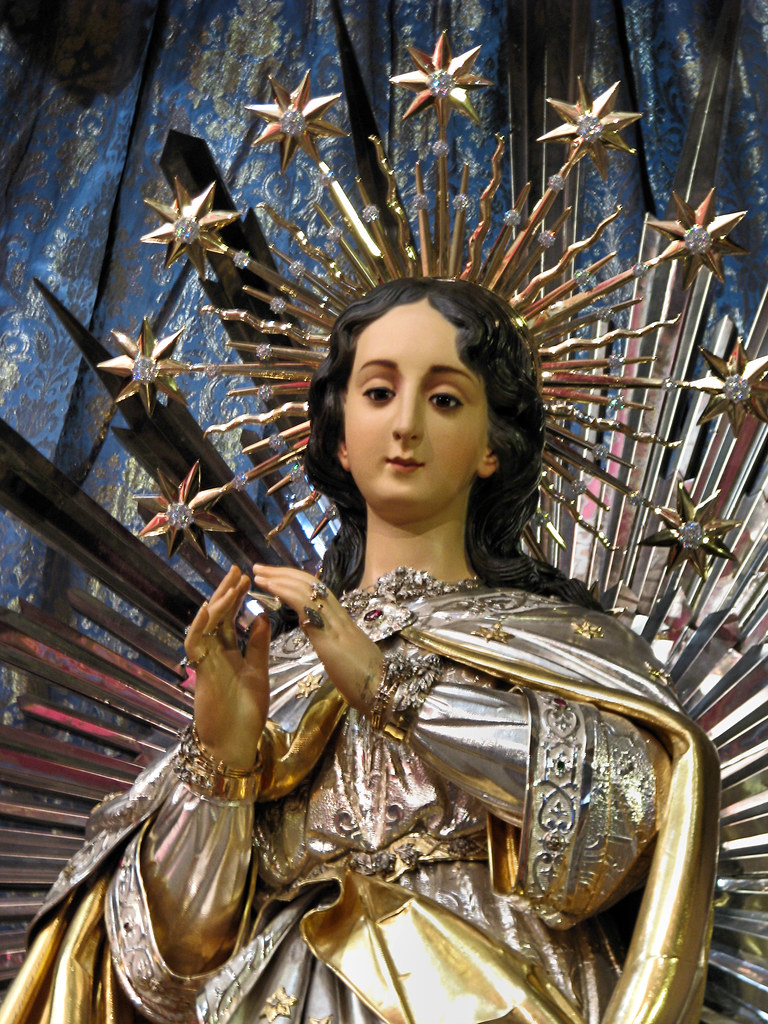Prophecy Monthly – April 2025
April was a month of mourning. First the world’s Easter traditions ‘celebrate’ the death of Jesus followed by his supposed physical resurrection. This April, the death of Pope Francis and his funeral Mass dominated the News. The funeral was a world-wide event with leaders and rulers from hundreds of countries attending the Mass. In other News, wars, both military wars and trade wars continued to escalate. Reports of sexual abuse continues to plague the Roman Catholic church as well as institutions such as LA’s juvenile support systems. What do all of these events have to do with prophecy?
The following map is a summary of current events related to prophecy. Below the map you will find the event details and relevant Scriptural references. Many people have been taught God’s Word in the past tense. This is incorrect. The teachings and scenarios in the Bible and God’s Word are all prophetic, pointing to a future time, and that time is now.

